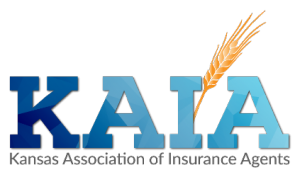Plan Your Work and Work Your Plan
Provide a vision that looks beyond the present to the desired future
ndependent insurance agencies are at a crossroads. Decisions made in the next few years will have a profound and perhaps irrevocable impact on the future of the independent agency system. Strategic planning is not only a necessity, but it may also be a business imperative. Yet, it seems very few agencies spend the time and resources required to create and implement a comprehensive business plan. In the past, the old “double your premium volume in five years" method was sufficient, but without the details of exactly how that is to be accomplished, it isn't really a plan at all.
Agencies need business planning because the world is changing rapidly all around them. Insurtech is not a "fad" that will soon pass, it's a force with which to be reckoned. It would be foolhardy and unrealistic to assume that economic conditions, consumer needs, and expectations, competition in the marketplace, or a host of other factors will remain constant for five, three, or even one year in the future. Agency business planning is the process by which the guiding members of an organization envision its future and develop the necessary people and processes to achieve that future.
In other words, agency business planning helps the organization create its own future by examining both internal and external environments and creating a journey map to guide the agency toward a better outcome than would be achieved without it.
Some would argue that in today's fast-paced business world, planning is the antithesis of being nimble and agile. However, the benefits of developing a business plan are many, not the least of which are the steps necessary to prepare the plan.
The process of planning, in addition to the actual plan itself, creates its own benefits to the agency in the form of:
- A compass for owners, managers, and staff as they conduct the day-to-day business of the agency,
- Focusing on activities that add value to the agency's clients and ultimately to the agency,
- Identifying and optimizing the use of scarce resources, including time, money and talent,
- Understanding the financial aspects of the business, including asset disposition,
- Anticipating and avoiding obstacles that may appear along the pathway to success, and
- Providing benchmarks against which to measure performance, individually and as an organization.
Before undertaking any project as important and complex as creating a comprehensive business plan, consideration should be given to whether or not the agency is ready for this level of activity. Many individuals will be involved in the planning process, including key business partners, clients, and insurance company personnel. Agency business planning is a project of planned change, and a simple governing principle applies: if the organization is not ready to create and implement the plan, it makes little difference in how the planning process is organized or who is involved. It is highly unlikely that any significant outcome will result.
While the organization as a whole must be ready and committed to the planning process and change, it is even more imperative that the owners be similarly dedicated. More than providing a vision that looks beyond the present to the desired future, owners must help set the goals to articulate that future and the processes to measure progress toward it. They must have the integrity to know what is right and proceed in the right way, both in the planning process and implementation. They must have the courage to initiate change and remove obstacles. Owners must know themselves, be able to deploy staff appropriately, be courageous and open to feedback, and be able to use that feedback effectively. Staff members need to have the confidence to challenge authority and the status quo when appropriate.
One of the best starting points for developing your agency's business plan is the well-respected and much-used SWOT analysis – Strengths, Weaknesses, Opportunities, and Threats. For some agencies, this may be as far as the planning process goes, but much good can come from it even if it is the only annual planning activity. Strengths and weaknesses are internal factors – what does the agency do well and in what areas is there room for improvement. This requires an honest assessment of where the agency is today, what challenges and issues need to be resolved, and whether or not your internal environment will help you achieve your agency's goals. This can be the most time-consuming part of business planning and is not without a certain amount of pain. But from that pain comes greater insight into what must be done.
Understanding the external environment is also critical to sound planning. What opportunities exist in the marketplace – new industries, community growth, general economic trends, and the like will form the basis of this portion of the analysis. When considering threats, what legal or regulatory challenges may be on the horizon, which competitors could cause the highest level of disruption, and what factors (economic or otherwise) could impact the agency's attainment of its goals.
If you think your agency is ready to take the plunge and commit to creating a challenging but achievable set of goals and strategies for agency growth, congratulations! You have probably just moved your agency into the top one percent of all independent agencies in the country. In the words of the Chinese philosopher Lao Tzu, “the journey of a thousand miles begins with one step."
-------------------------------------------------------------------------------------------------------------------------------------------------------------------------------
CHERYL KOCH is an agency management consultant and educator, and a frequent speaker at various industry meetings and events nationwide. She is currently the owner of Agency Management Resource Group, a training, education and consulting firm located in Roseville, California, serving various facets of the insurance and financial services industries.
